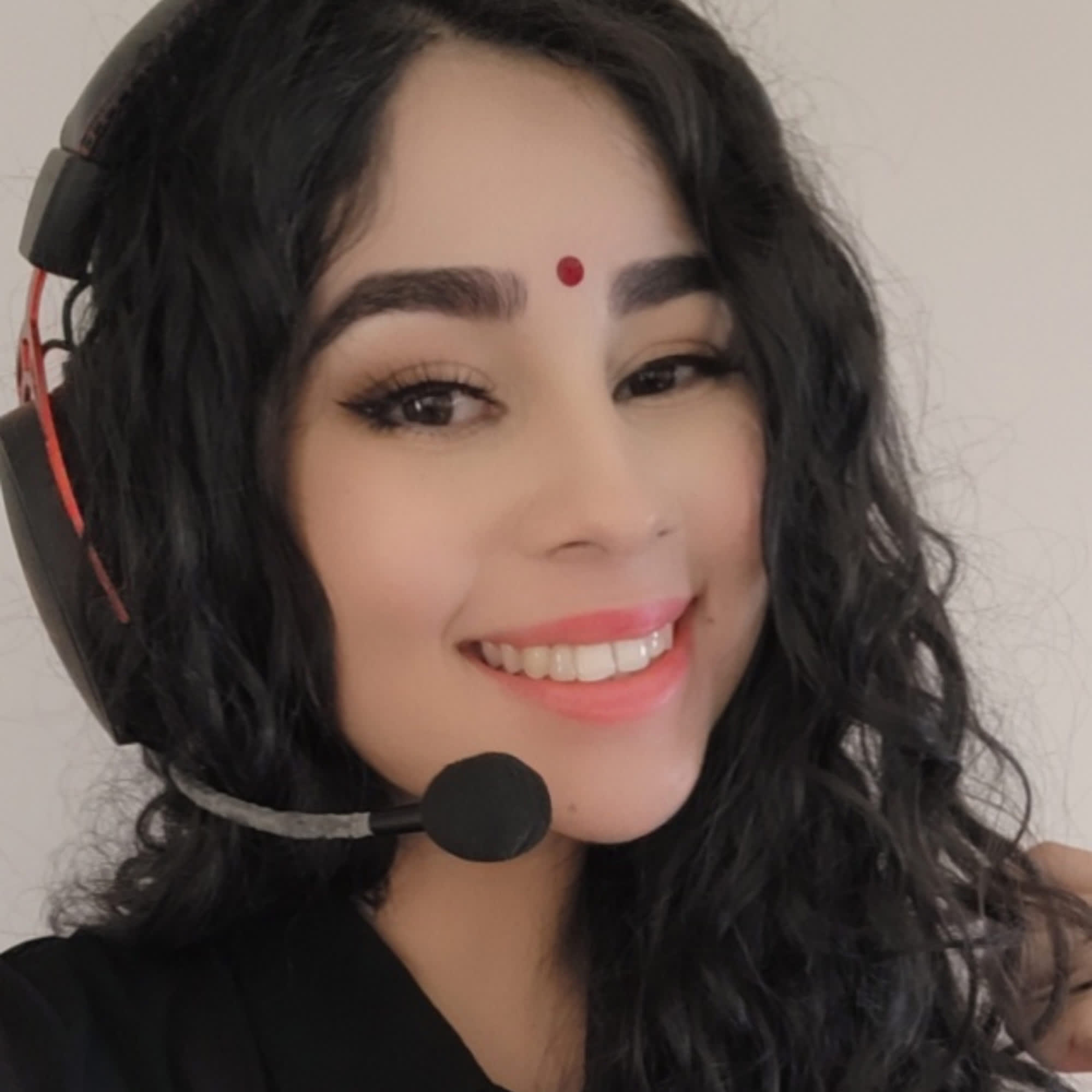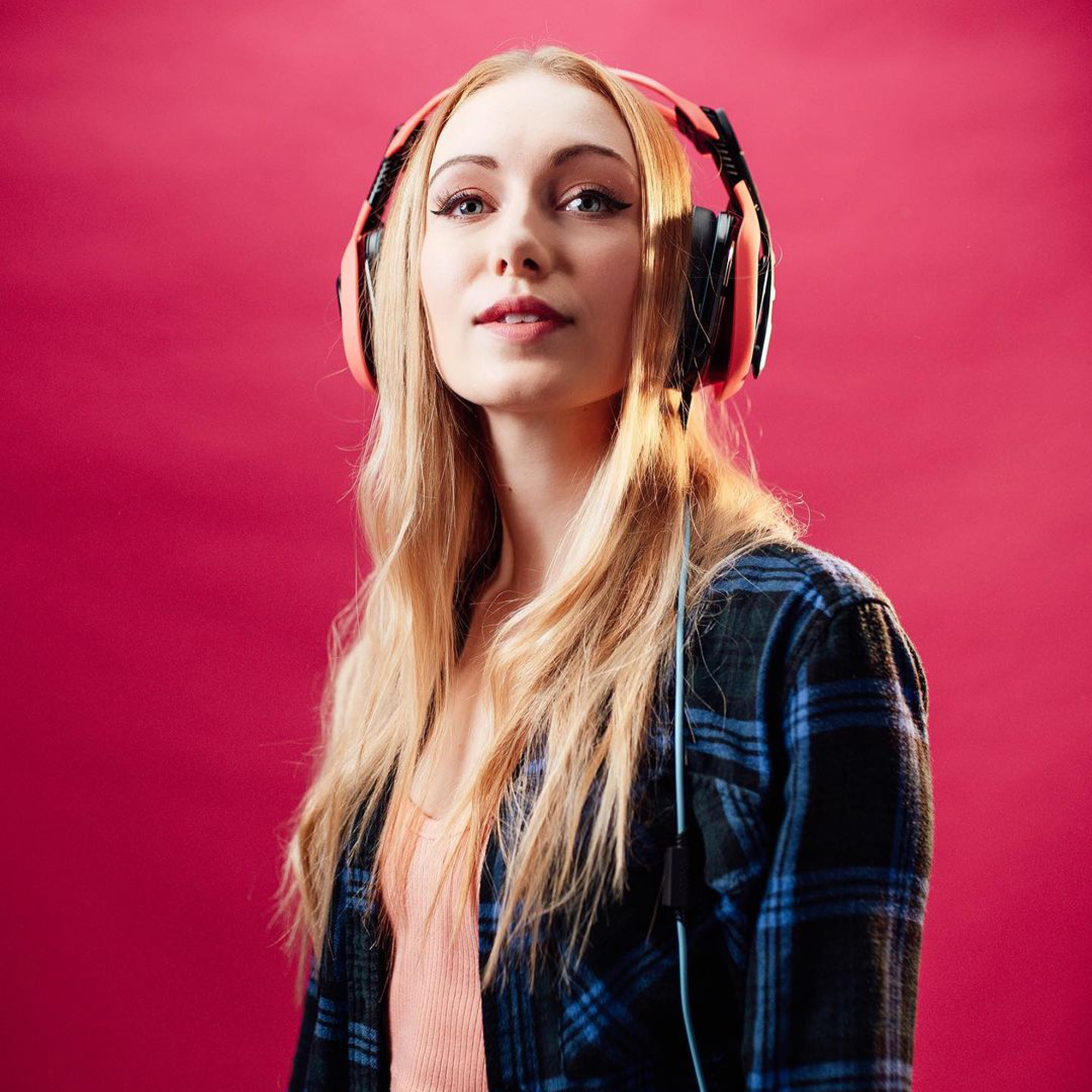
- POPSUGAR Australia
- Gaming
- What Exactly Does an Esports Caster Do? We Asked CozyJozie What It’s All About
What Exactly Does an Esports Caster Do? We Asked CozyJozie What It’s All About


POPSUGAR Australia has partnered with Alienware to highlight female champions in the gaming industry.
“If you search ‘how do I become a caster’ there’s nothing,” CozyJozie tells me at the start of our call. “If you don’t know people in the scene who can explain it to you, there’s nothing available and it’s so sad. I bet there’s quite a lot of people who are wondering what it would be like to be a caster but it’s just like… how?”
The reason we’re chatting is because I’ve looked this up and found the same thing. POPSUGAR Gaming has spoken to streamers and esports players to learn how to break into the scene, but what is there for people who want to sit behind the commentators desk?
CozyJozie is an Australian-based esports caster who specialises in Valorant and Apex Legends. She rose to popularity fairly recently casting in VCT Game Changers — a Valorant tournament for women and other marginalised genders — and has continued making a name for herself as an accomplished caster fighting for representation in the community.
She told me what an esports caster actually does and, more importantly, how someone with a casual interest can break into the scene and make a name for themselves. If you’ve ever watched an esports tournament and found yourself thinking you’d like to switch places with the casters, read on to find out how to become an esports caster, straight from someone who’s already done it.
POPSUGAR Australia: Hello! You’re an esports caster for games like Valorant and Apex Legends. Can you tell us a bit about what an esports caster actually does?
CozyJozie: A caster basically describes what’s happening in a game during a live broadcast. We’re there to create a story from the game and bridge the gap between casual gamers and esports enthusiasts.
There are two kinds of casters: play-by-play and colour casters.
Play-by-play casters are the people you hear doing all the hype stuff, like describing what’s happening on the screen. They talk about things like the backstory of the players and discuss the outcome of the match.
Colour casters usually break it down as to why that happened on screen, and why a certain team won over the other. They explain what an ability does or why a certain play didn’t work out. They bridge the gap between casual players, or people who don’t understand the game, and the game itself.
PS: How did you get into casting?
CJ: It’s a bit interesting how I got into it in the first place. One of my friends in the Twitch scene was hosting a female-only Apex Legends tournament and she was telling me about the people she needed to ask to cast it. And I said it as a joke mostly, but I said, “if none of these people are free, worse comes to worse, I’ll help you cast.”
Ended up being worse comes to worse and she messaged me being like, “So… No one else can make it. Can you help me cast?”
At the time, I had very minimal knowledge about Apex Legends and I told her that. I watched a couple of pro matches and how the commentators talked, just to give myself an idea of what the hell to say in the first place. And then she was like “Alright, I’m going live now,” and that was the first time I ever casted.
There were quite a few people watching and, for some reason, they thought I did this for real. And then I got contacted by someone who was organising a Valorant tournament — thankfully a game I played a lot of and understood a lot more — and they asked me to cast for that.
PS: How can casters improve and grow their reputation?
CJ: A big thing that helped me was growing my social presence. Twitter, specifically, is huge for gaming. But also straight up reaching out to casters, especially the highest tier of caster. A lot of people will ignore you, but you do get a lot of casters who actually sit there and answer your questions about casting and how to get better.
PS: Do you need to be able to play the game at a professional level to cast it?
CJ: Definitely not. A lot of the best casters just understand the game because they’ve watched it and analysed it. You don’t have to be mechanically good at the game, you just have to understand it at the highest level possible — and that can be done without even touching it.
But in saying that, it definitely helps if you’ve been on a team before or played at a higher level. You can understand the way a player is thinking during certain moments because you’ve been in their shoes. For example, DDK is a very analytical play-by-play caster who almost colour casts exactly what’s happening on the screen. And it’s because he has experience being a player as well. But it’s not a requirement at all.
PS: How much does a caster make, and how long does it take to start earning money from casting?
CJ: It’s a very long grind and you have to invest a lot of unpaid time and energy. I’d say even anywhere between three to four months of unpaid work before you eventually get paid. Especially at a higher level, because there are so many people who want to do it but so few opportunities available for a stable income.
PS: Is it possible to make casting your full-time job and earn a stable income?
CJ: It is, but you have to have other things supporting it. A lot of people stream on the side, as part of their income and to grow their brand. There’s a lot that goes into making it stable. But for the casters who are at the highest level, 100%. That’s their full time job and it’s a stable income because they already know what their next job will be.
It’s harder for anyone at a lower tier because you’re constantly searching for gigs. If you don’t search for gigs, you most likely won’t get them. They’re not going to arrive on your doorstep because there are so many people who want to do it.
PS: What do you think about women’s tournaments — are they necessary or performative?
CJ: I think they’re the next step towards not having any women’s leagues because they won’t be necessary, because there’d be acceptance and support for women playing and being part of the scene.
At the same time, they’ve done so much for the community and helped create jobs for women in gaming. It’s amazing to see the amount of careers that have been created literally because of Game Changers.
Riot Games and Anna Donlon, who’s the executive producer of Valorant, created and supported Game Changers and it’s made so many opportunities that weren’t there before, and so much more acceptance for female players that I don’t think was really there beforehand.
The amount of support Valorant has had for women has completely changed the community. There still needs to be a lot more work done, because there’s still a lot of misogyny and sexism within the industry. But I think it’s done so much for the gaming scene in general.
If you just see a bunch of guys playing the game, it doesn’t inspire you as much as when you see another woman. It makes you want to get more into the game because you have someone who you can relate to more.
When I went onto the Game Changers broadcast for the first time, I wanted to give a bit of representation to my culture. I’m Indian, so I had a bindi on my forehead.
I was the first South Asian person on a North American Valorant broadcast, and I got so many messages afterwards from South Asian people who said they never really thought they’d see someone who’s Indian on the big stage. It was really wholesome to see the impact it had on people who wanted to pursue casting or wanted to be a player. It was such a small gesture and I didn’t realise the impact it had until after the cast.
Read more POPSUGAR gaming content below:
- Is ‘Tears of the Kingdom’ a Prequel to the First Ever Zelda Game? Lore Experts Think So
- “She’s a Top”: Anna Torv Answers All Our Questions About Tess In HBO’s ‘The Last of Us’
- 5 Games to Play Before Declaring ‘The Last of Us’ the GOAT
- Elden Ring Detectives Have Some Wild Theories About the DLC — Here Are the Best Ones
- Joel Finally Called Ellie “Baby Girl” In ‘The Last of Us’ and Fans Are Not Okay


